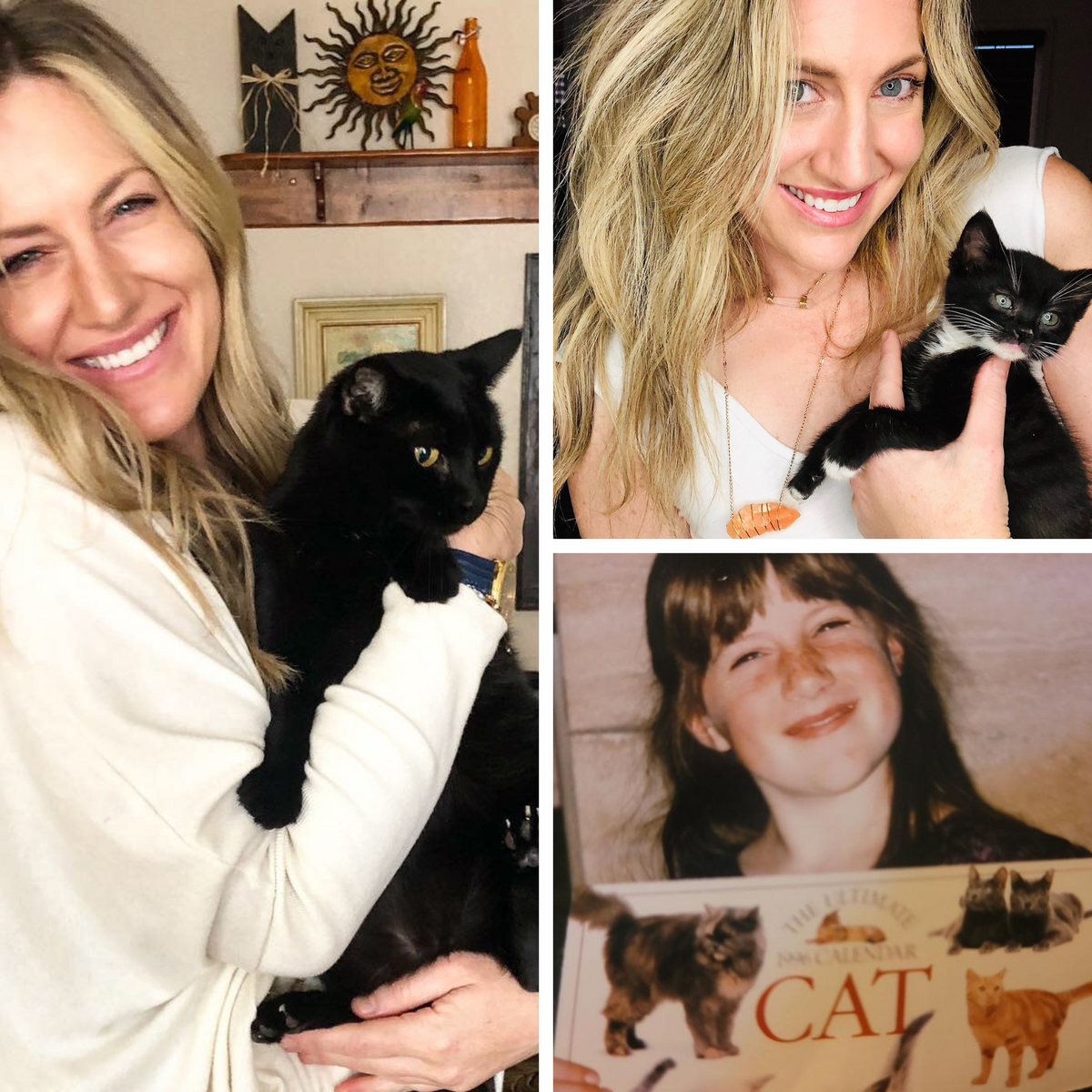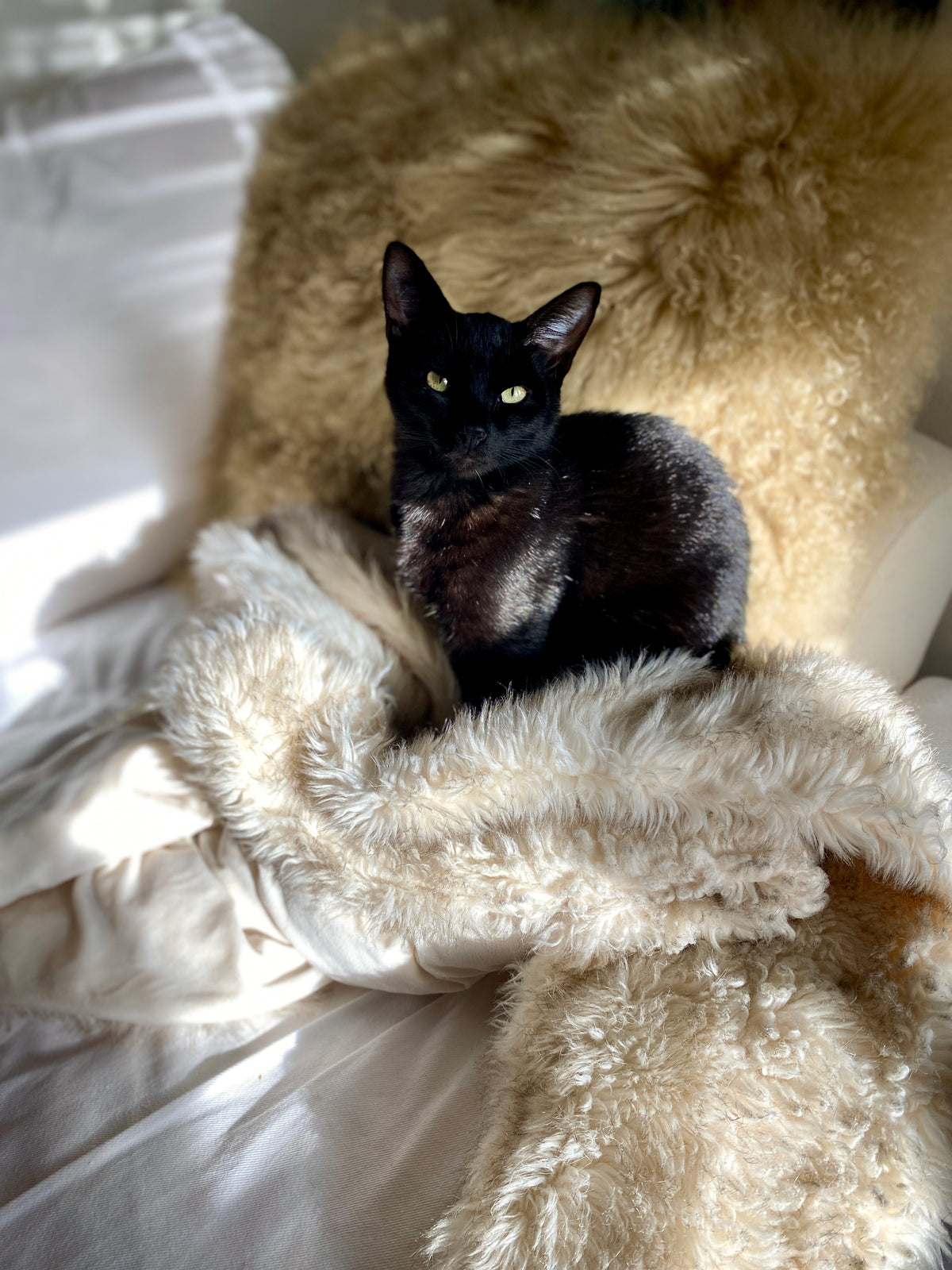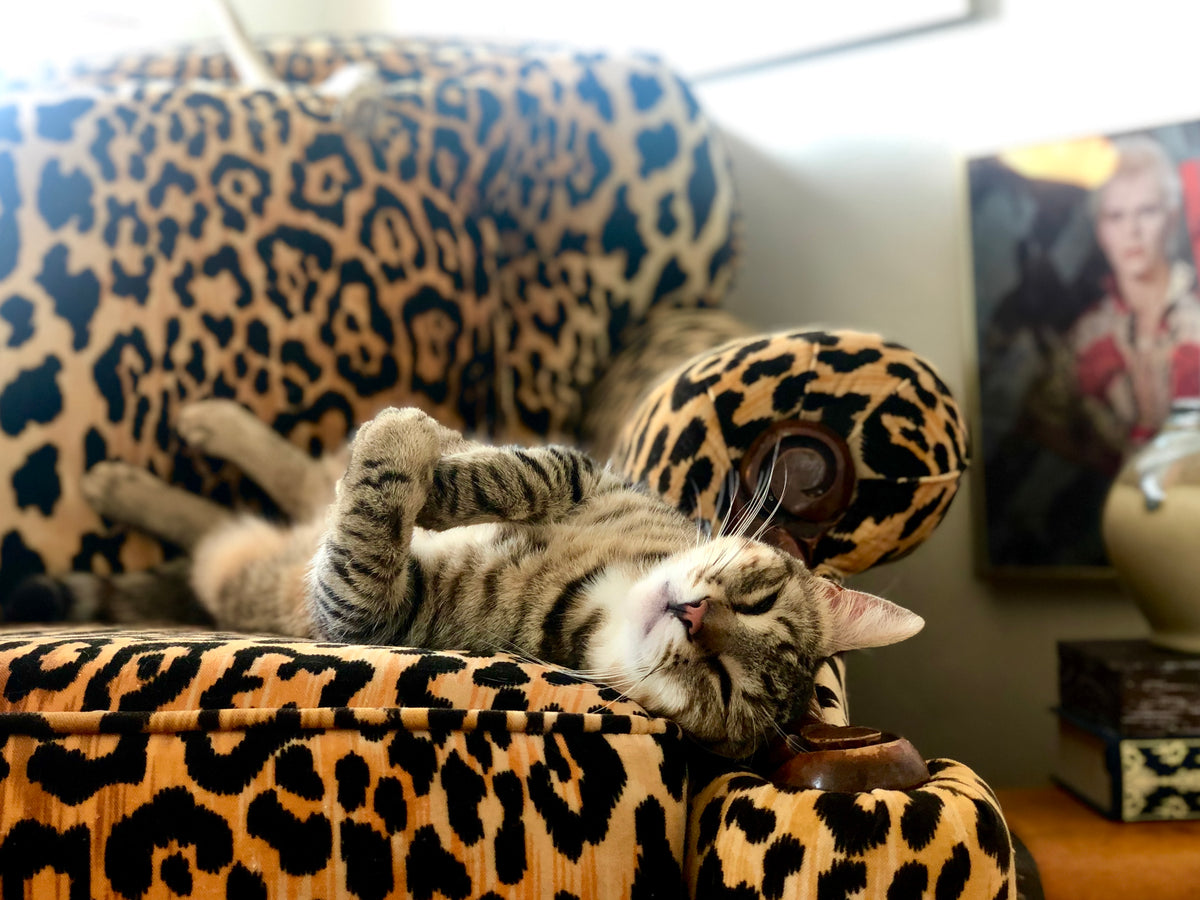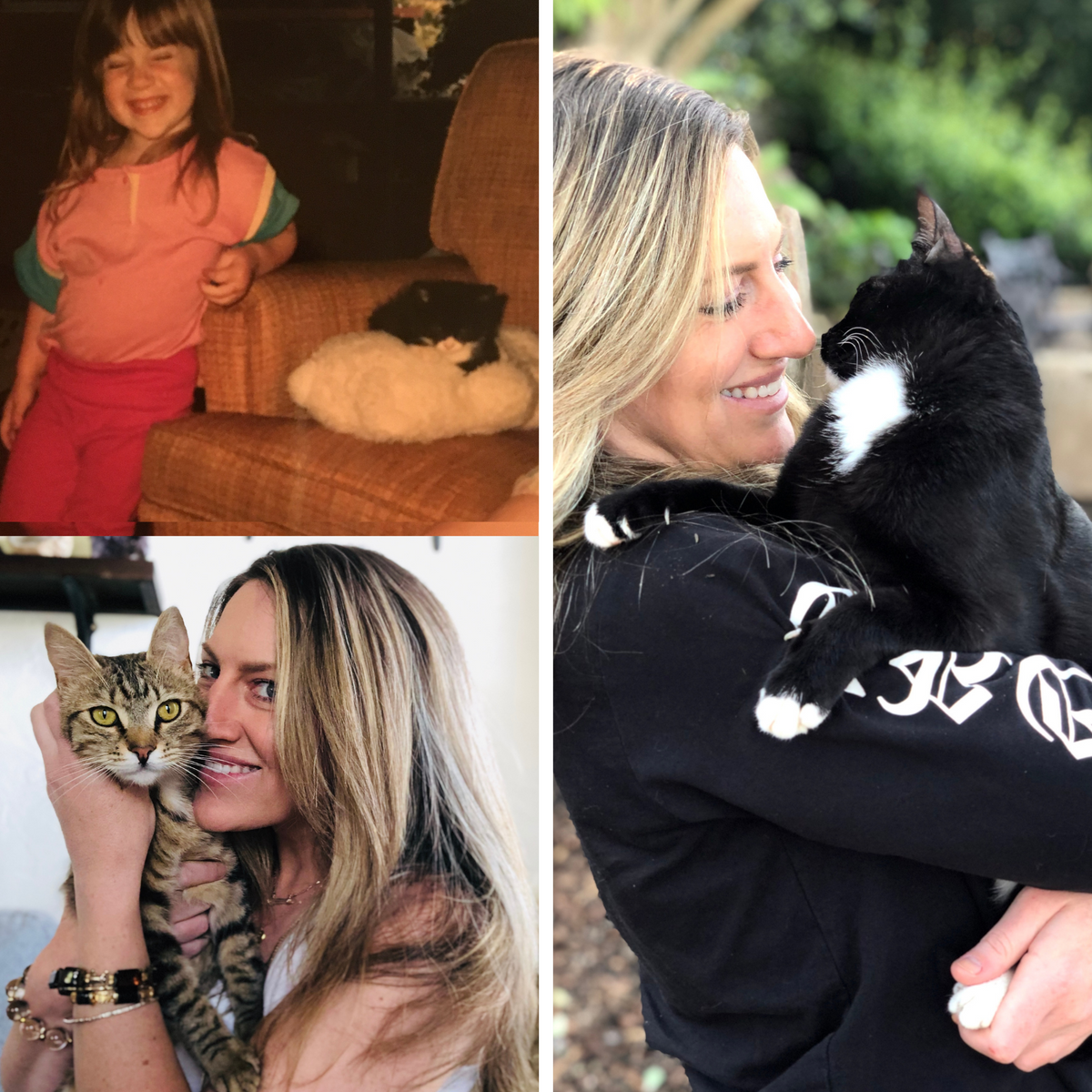
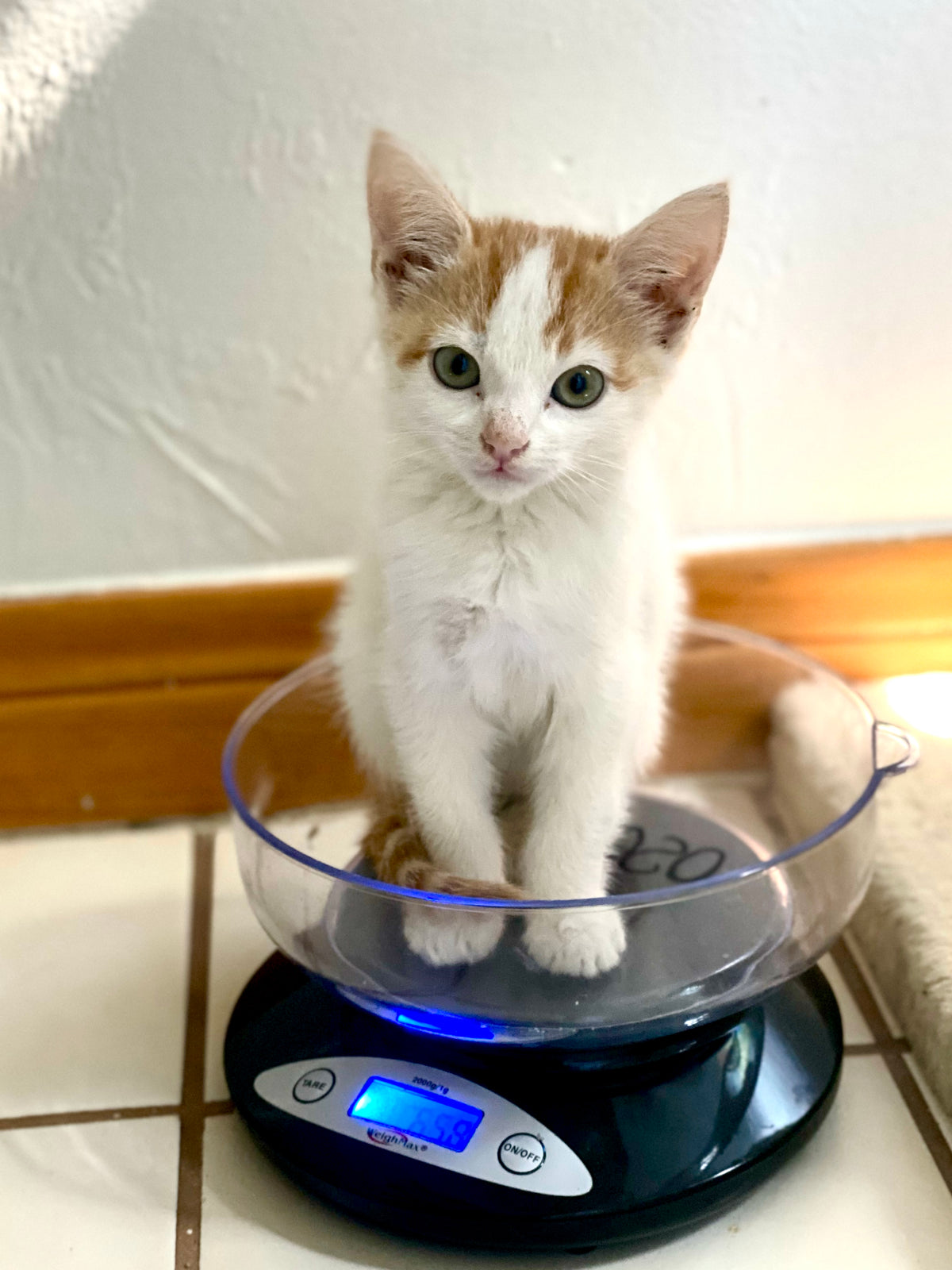
I grew up in Escondido, surrounded by cats.
When I moved to Oceanside nearly ten years ago—what I like to call the 'Escondido by the Sea'—my landlord warned me about the area: "Run toward the ocean, don’t go east—it’s dangerous." I took her advice at first, but little did I know that running through my neighborhood would eventually lead me to a life-changing mission.
Living alone for the first time, I missed the cats from my childhood home. To get my cat fix, I would run through my neighborhood, stopping to befriend every cat I met. By 2017, I knew every feline within a five-block radius and started an Instagram account, @catsofoceanside, to document my encounters.
During the pandemic, I took a leap and started fostering kittens through the humane society. It completely transformed my life. Fostering gave me a sense of purpose, expanded my perspective, and filled my heart. That’s how I ended up with Dolly, my white-and-orange 'foster fail', who became a permanent part of my family during those uncertain times.
But as I became more involved in cat rescue, I noticed a troubling shift. Running east no longer felt unsafe—gentrification was rapidly changing my neighborhood. Rent prices soared, low-income families were displaced, and in the aftermath, countless cats were left behind. These newly homeless cats hid under cars, darted across busy streets, and searched for food unnoticed.
At the same time, the local humane society changed its policy. Cats without microchips would now be sterilized and returned to the streets, regardless of temperament. This approach, part of their Community Cat Program, is effective for managing true feral colonies but devastating for friendly, abandoned cats. Unlike ferals, previously owned cats had known human affection, and safety. Although sterilized, the practice of returning them onto the streets exposed them to avoidable illness, starvation, traffic accidents, and cruelty.
The pandemic made things even worse. TNR (Trap-Neuter-Return) services shut down as they were deemed non essential services, meaning cats weren’t even getting sterilized anymore. The combnation off all these factors resulted in the free-roaming cat population exploding, turning an already fragile situation into a full-blown crisis.
I realized someone in my community had to step up and help these cats. And that someone was me.
In December 2021, I turned @catsofoceanside into something more: Cats of Oceanside, a registered nonprofit dedicated to helping friendly, forgotten, and vulnerable cats—whether they slipped through the cracks, were abandoned, or were born on the streets. These are the cats that need someone to see them and give them a second chance at life and a loving home.
I’ve always seen cats as the underdogs of the pet world (pun intended). They don’t always get the respect they deserve, yet they are nuanced, incredible companions if you take the time to understand them.
Through Cats of Oceanside, my mission is not just to rescue and rehabilitate cats in our community, but also to educate, advocate, and change the conversation around feline welfare. I want to dispel the stigma surrounding "cat people" and showcase the incredible, transformative power of loving felines.
None of this is possible without you—our fosters, adopters, supporters, and fellow cat lovers.
Thank you for being part of this journey.
With love,
Alison
Founder & Executive Director


